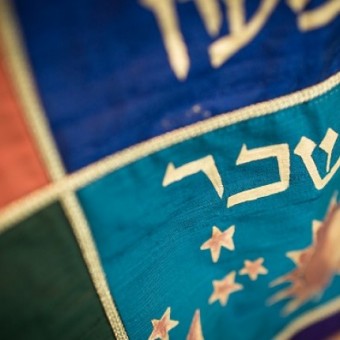
A Banana on the Seder Plate
ACC Cantor Aviva Marer and Rabbis Dan Moskovitz and Daniel Gropper put together a Passover Seder supplement to include in their congregational Seders based on the current Syrian Refugee Crisis. Rabbi Moskovitz wrote an explanation for why we are putting a banana on the Seder plate, Rabbi Gropper wrote a prayer for the refugees, and Cantor Marer wrote a poem. It is all based on Aylan Kurdi, that beautiful little 3-year old boy who washed up on the shore in September. We were all devastated by that image and needed to do something.
A Ritual to Reflect on the Refugee Crisis during the Passover Seder
The world was awakened and shattered by the images of a little boy whose body lay lifeless amidst the gentle surf of a Turkish beach this past summer. Another nameless victim amongst thousands in the Syrian Refugee Crisis, the greatest refugee crisis since WWII. But this little boy, like every little boy ,had a name. His name was Aylan Kurdi (age 3), he drowned along with his older brother, Galip (age 5), and their mother, Rihan, on their own exodus to
freedom’s distant shore.
Aylan and Galip’s father, Abdullah, survived the harrowing journey – though how does a parent survive the death of their children? In teaching the world about his sons, he shared that they both loved bananas, a luxury in their native war-torn Syria. Every day after work, Abdullah, like mothers and fathers everywhere, would bring home a banana for his sons to
share, a sweet little treat, a sign of his enduring love for them.
Tonight we place a banana on our seder table and tell this story to remind us of Aylan, Galip and children everywhere who are caught up in this modern day exodus. May they be guarded and protected along their journey to safety, shielded by the love of their parents, watched over by God full of mercy and compassion.
Rabbi Dan Moskovitz, Temple Sholom Vancouver, British Columbia

